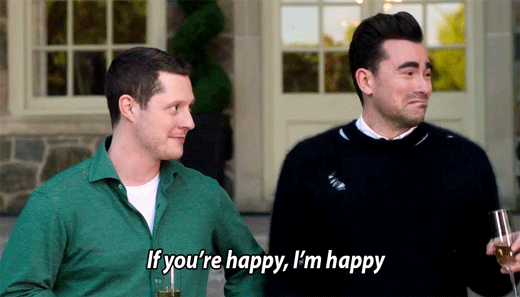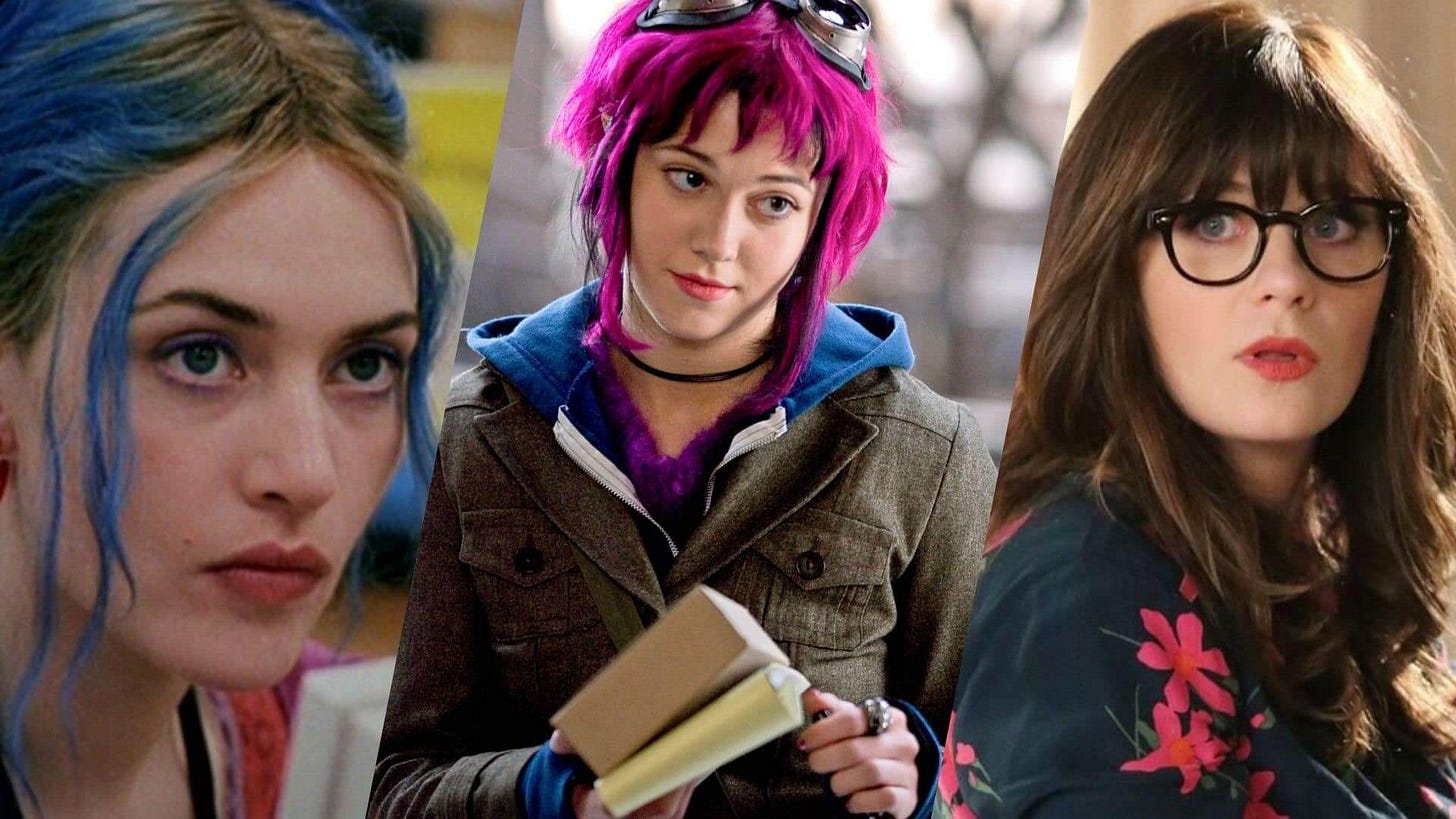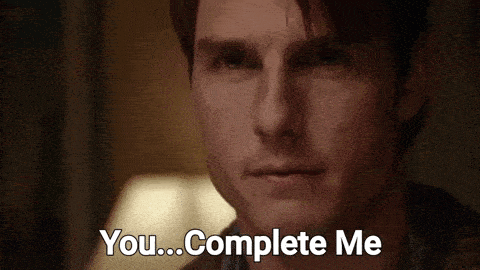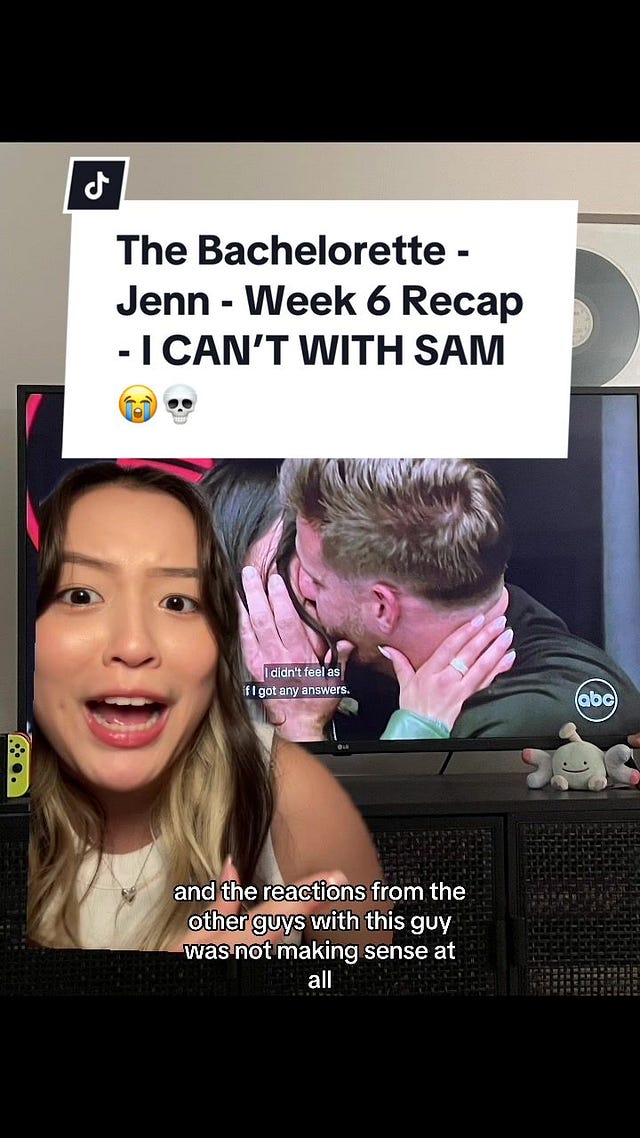The Ways We've Been Taught to Love Aren't Okay. They're Traumatizing
Part 3: From Codependence to Interdependence
Hello dear ones,
I’ve been feeling called to write this series, “The Ways We’ve Been Taught to Love Aren’t Okay. They’re Traumatizing.” Two weeks ago, I wrote about “The Healing Magic of Friendship,” in which I talked about how we need to stop prioritizing romantic intimacy above everything else. And the week before that, in “Unlearning Toxic Romance,” I reflected on the ways in which movies and television taught me that love should be toxic and insecure and co-dependent. This week is all about the difference between codependence and interdependence.
Friendly reminder that your subscriptions mean so much to me, whether they’re free or paid. I’m currently working towards my goal of having 500 paid subscribers and 10K free subs by the end of 2024. I’m currently at 260 paid subs and 7K free subs. Every time you share a quote that you love or the link to this essay, you’re helping me get one step closer to my dream of living off of my writing. Thank you for being here.
And before we jump in, two reminders:
My 25% off flash sale ends tonight, Monday, August 19th at 11:59pm PDT. So this is your last chance to grab my coloring book, oracle deck, and all other print and digital goods at a discount! Use the code BACK2SCHOOL25. Shop here.
Next Monday, August 26th is my brand new webinar “Dating Profiles for Trauma BBs, Queers, and Other Tender Weirdos.” Learn more and register here.
In the weeks following my father’s death from Lou Gehrig’s disease, I sat in front of my therapist Amy and told her: “I don’t know who I am if I’m not a caregiver anymore.” For the past twenty years of my life, I was a primary caregiver to my father, and many of those years were also spent raising my younger brother. I only had two routes to pleasing my father: being a straight A student and in my role as caregiver.
As I grew into an adult, I took on a new role: the peacekeeper. Whenever my father and brother would be in conflict, it was up to me to smooth things over and put them both back into a good mood. And so my whole sense of identity and self-worth were rooted in a lifetime of putting the needs of others before myself. If co-dependency was an art, I was a master at it.
It’s not surprising to me that my romantic relationships followed suit. There was nothing more romantic to me than the idea of merging with the person I loved and losing myself in my love for them. This, I’d later learn, is called enmeshment. My relationship with my father (to whom I became a surrogate body as his illness left him unable to use his arms and then later his legs) as well as my brother (who was both my sibling and a child that needed a mother figure) set the blueprint for how I’d approach my romantic relationships.
This pattern of placing others always before myself was reenforced by the romanticization of the trope of the Manic Pixie Dream Girl. Always ready to swoop in to help emotionally unavailable men become the best version of themselves without any acknowledgment of the emotional labor these women and femmes performed. What’s more romantic than sacrificing your own needs so that a mediocre man can grow?
I became another version of the MPDG: a sort of Wounded Witch Healer Girl. I’d enter your life and make you see just how magical and deserving of love you are — and in doing so, I’d not only heal your trauma of not feeling loveable, but mine too. At your service as mother-healer-therapist-lover all wrapped into one. How could you not need me???
After years and years of therapy, I can see how codependency was all that I knew. I’d never been able to develop a fully formed sense of self outside of the roles I received praise for: good student, dutiful caregiver, skilled peacekeeper. And here we are back in Amy’s office, with me asking: “Who am I if I’m no longer a caregiver?” The answer, it turned out, was that I could finally figure out what caring for others looked like when it was consensual. That I could now move from codependence to interdependence.
While the word “codependence” is everywhere on therapy-oriented social media, I’d like to offer a definition here because all of this talk about codependence has emptied it of meaning. The best definition I’ve found of codependency is: “a complex and pervasive behavioral pattern where one person becomes excessively reliant on another for emotional well-being, self-worth, and self-identity.”
Ever heard the phrase “I’m only happy if you’re happy” While we’ve been taught to read that sentiment as romantic, that’s actually just co-dependence in sheep’s clothing.

What troubles me about critiques of co-dependence is that they fail to consider or offer up another alternative to the independent subject that’s been romanticized by neoliberalism. And so I want to bring another important term into the conversation: interdependence.
In Emergent Strategy, adrienne maree brown defines interdependence as “mutual reliance” that requires a shared commitment to vulnerability, and to the decentralization of power. With interdependence, we recognize that we’re all quite literally hardwired for connection, and that needing others doesn’t make us weak or co-dependent. It makes us human.
The reason we don’t talk about interdependence is that it’s a threat to systems of oppression. We are stronger together. And so by promoting the myth of the individual (which is inextricably linked to the American Dream), by valorizing those who can just pick themselves up the bootstraps, and be “resilient” all on their own (as if resilience isn’t built through interdependence), the powers that be keep us separated and fractured.
So how do we tell the difference between co-dependence and interdependence?
Codependence says, “I won’t be okay unless you’re okay.” Interdependence says, “I don’t need you to be okay.
I can meet you where you’re at.” As someone who has such a hard time when my partner is in a bad mood, I’m learning that I don’t have to fix their moods in order for us to be okay. It’s okay if they’re not always okay. And the same is true for me.
Codependence says “You complete me.” Interdependence says, “You add so much to my life.”
I know, I know, we’ve really been taught that another person should complete us, as if there was a piece of us missing until we found them. But the more I step into secure attachment, the more I realize that “you complete me,” places A LOT of pressure on the person we love. While I grew up singing the Spice Girls “When 2 Become 1,” I’m happy to report that the idea of merging with my partner no longer appeals to me.
Codependence says, “I can’t live without you.” Interdependence says, “I would be so sad without you, but I would survive.”
Unfortunately the statement “I can’t live without you” is another one that we romanticize — but it is a phrase that I’ve seen used to manipulate people into staying in a relationship that they’re no longer happy in. The truth is, we can and very much will survive heartbreak — because we already have. We just have to remind that very scared younger part of us that we’re no longer dependent on adults to care for us and we will be there if/when the relationship ends.
Codependence says, “We must share all of the same interests.” Interdependence says, “I love that you have your things you’re interested in and I have mine. We can support each others’ interests without having to make them our own.”
While I truly love spending all of the time with my partner, if they want to go camping, I will give them my blessing and sleep comfortably in my memory foam bed while they do so. Yes, it’s important to have shared activities and interests. But spending time apart helps build secure attachment, as does celebrating our loved ones. So you don’t need to join the queer softball team if the idea of having a baseball thrown at your head makes you have a panic attack. You can cheer from the bleachers instead.
Codependence says, “I’ll do whatever you need me to.” Interdependence says, “I will support you as best as I can while also respecting my own boundaries.”
I’ve been watching the current season of The Bachelorette, and when Jenn (the titular subject) asks the men what qualities of hers that they love, the guy with the most red flags says that he loves how selfless she is. We really need to stop romanticizing self-sacrifice and villainizing boundaries. It’s okay to say no.
Codependence says, “We must avoid conflict at all costs so that we’re not abandoned.” Interdependence says, “Conflict does not need to be a threat.
In fact, conflict can help us deepen our understanding of one another. And if conflict leads to the other person leaving me, I can choose to not abandon myself.” Here’s a story I often tell in my conflict workshops: one night an (ex-)partner and I were in bed. It was after 11pm and my bedtime is historically around 10pm. We’re in conflict. My partner, knowing me, recognizes that we’re not going to solve this conflict tonight. I’m too tired and we’re talking in circles. He says, lovingly, “I’m going to go to sleep and we can talk about this in the morning. I love you.”
I stay up most of the night anxious that if I fall asleep I’ll wake up in the morning and he’ll have moved all of his stuff out of our apartment and there will be a note on the fridge. My other anxiety is that we’ll wake up in the morning and he’ll pretend that everything is fine and nothing happened (thanks dad for setting that pattern). Did either of those scenarios happen? No. In fact, we talked about the conflict and resolved it in 15 mins.
The Ways We've Been Taught to Love Aren't Okay. They're Traumatizing.
When we romanticize co-dependence, we keep ourselves locked into forms of relationality that are traumatic. One of the cornerstones of building secure attachment is understanding that we are separate from our parents. Building an autonomous — and interdependent — sense of self is integral to our development. If we grew up in families where enmeshment was the norm, then we’re gonna have to do some serious work as adults to unlearn the stories we’ve been sold by co-dependence.
But I don’t want us to swing to the other end of the pendulum either (trauma brain loves an either/or). It’s not the case that we don’t need other people. Remember what I said about being hardwired for connection? And also our hyper-individualistic society leaves all of us bereft of the forms of care and aid and support that we all deserve.
When I reimagine love, it is interdependent. I want a song called “When 2 Remain 2” and love declarations of “I’m so grateful to have you in my life,” and “What a gift that we get to be together.” I want us to celebrate each other’s boundaries because we know that, as Prentis Hemphill so beautifully put it, “boundaries are the distance at which I can love you and me simultaneously.” I want a love that is rooted in healing, not trauma.
Thanks for making it all the way to the end! If you’re feeling called to support me and this writing, here are a few ways you can do so!
Become a paid subscriber to this newsletter for $5/month.
Sharing is caring: share this newsletter on your social media and tag me! No matter how many followers you have, or whether your account is private, these endorsements go a long way.
Send me a tip via Venmo, PayPal, or my website! Every $1 truly does add up and brings a smile to my face.









There's one thing that I would love to add to this beautiful piece as stated by Jay Asooli, an intersectional relationship coach, "It’s important to name here that for women/nonmen, the crux of the reason we over-function, or carry disproportionate cognitive, emotional, domestic load is systemic, a function of patriarchal capitalism that devalues women/nonmen’s unpaid labour, while said labour bolsters men’s ability to progress in the workplace, make and, in many ways, hoard money and critical resources such as sleep, leisure and free time at women/nonmen’s expense."
It's important to understand that the role of the "caregiver" is intentional patriarchal conditioning so as to distance one's self from self-blame when that realisation about how one acted prior to avoid what I call "patriarchy-induce shame."
As an elder daughter who has been through this journey of measuring my worth by how much useful I am to others in their journey, this post embraced me with warmth as I am emerging on the other side - nourishing myself and finding interdependence. Thank you!